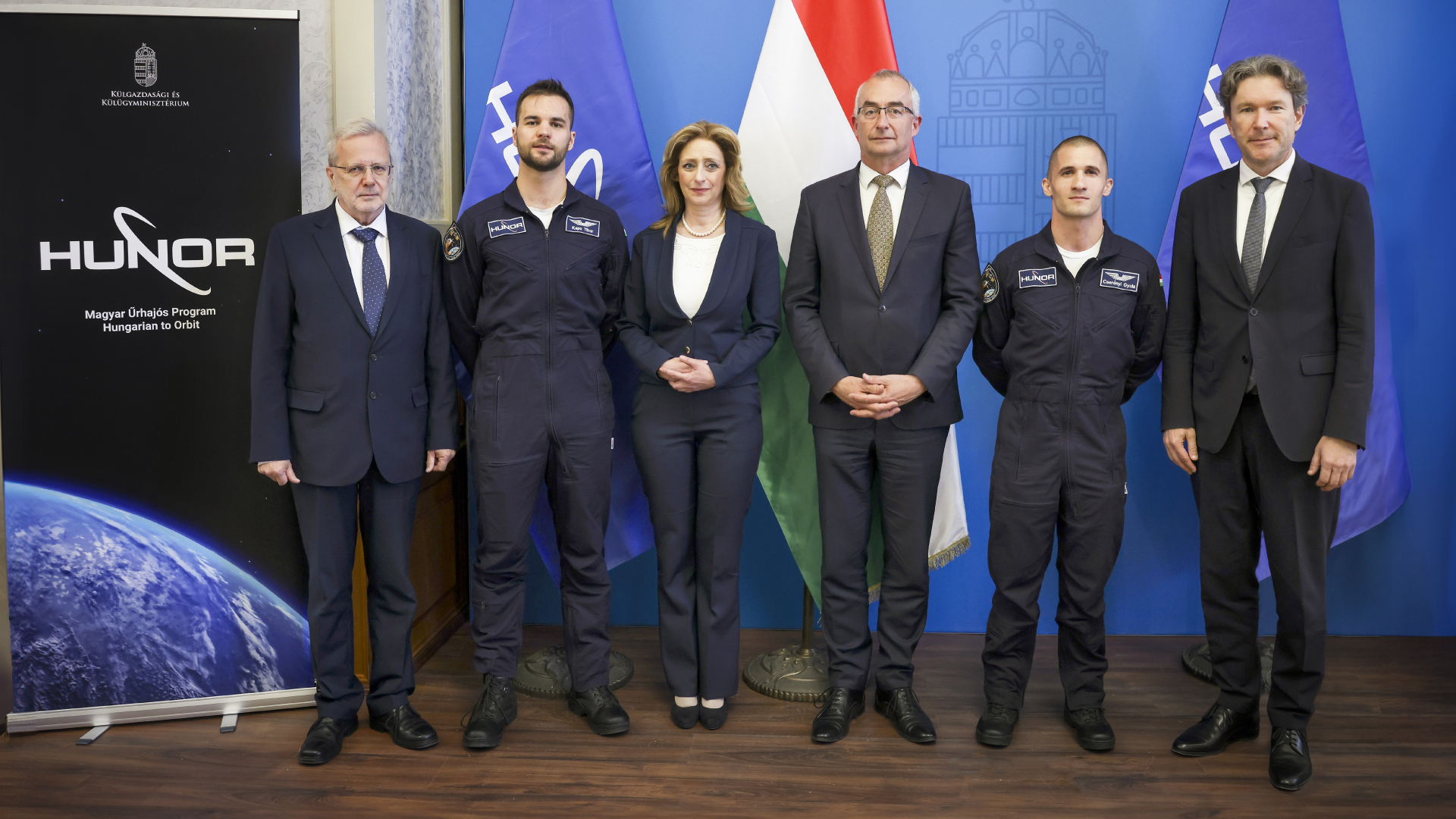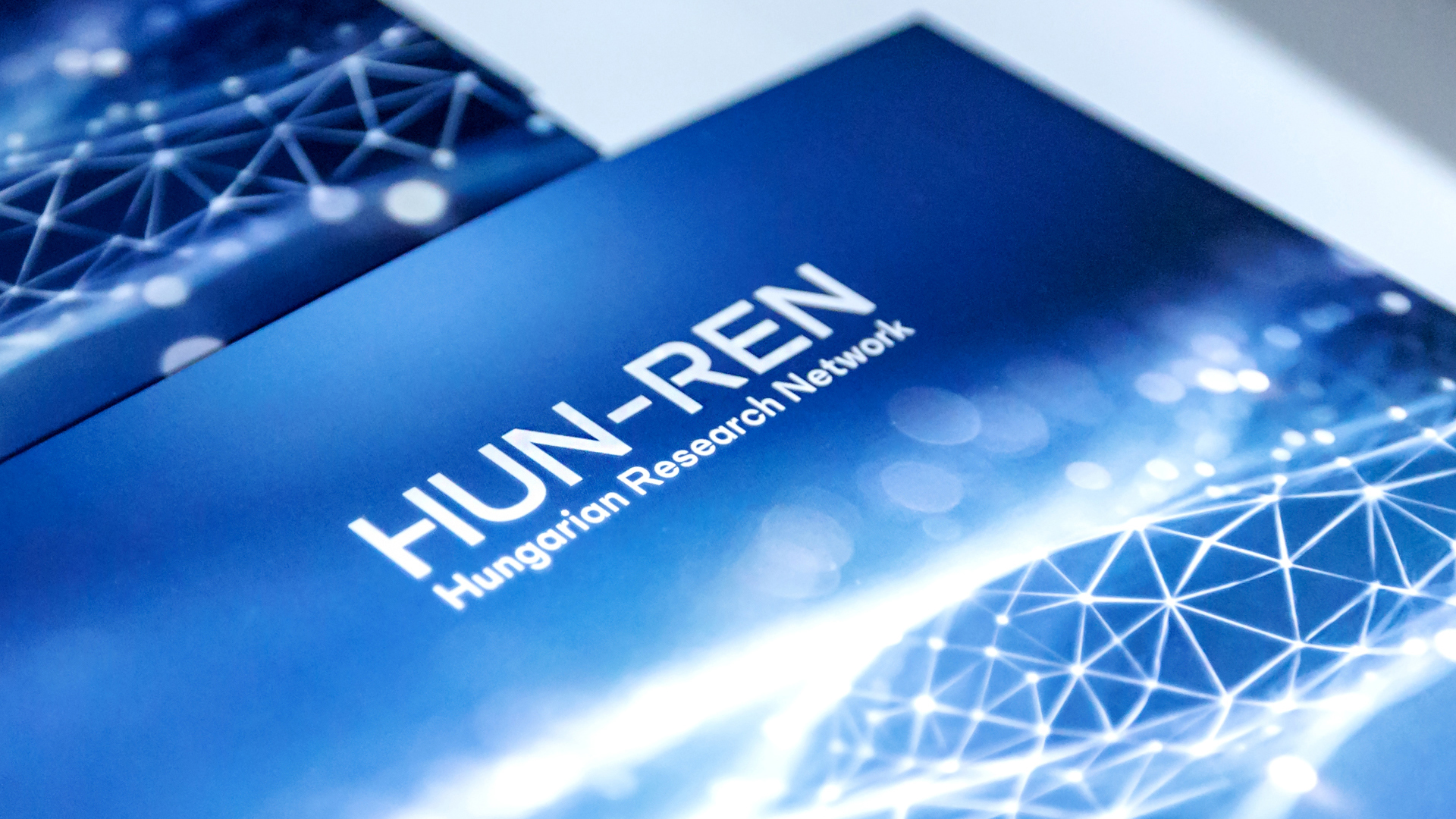Knowledge present in HUN-REN network to aid Hungary’s astronaut in scientific research
The Government of Hungary and the HUNOR – Hungarian Astronaut Programme can rely on HUN-REN, one of HUNOR’s most significant professional partners and hosts, providing full scientific support for Hungarian space research, emphasised Balázs Gulyás, President of HUN-REN at the Tuesday event presenting the selected research astronaut Tibor Kapu and backup astronaut Gyula Cserényi.

From right to left: Balázs Gulyás, President of the HUN-REN Hungarian Research Network, Tibor Kapu, selected research astronaut, Orsolya Ferencz, Ministerial Commissioner for Space Research, Péter Sztáray, State Secretary for Security Policy and Energy Security, Gyula Cserényi, backup research astronaut, and Roland Jakab, CEO of the HUN-REN Hungarian Research Network, at the press conference of the HUNOR – Hungarian Astronaut Programme, combined with the selection ceremony, at the Hungarian Ministry of Foreign Affairs and Trade on 28 May 2024. Photo: MTI/Róbert Hegedüs
Balázs Gulyás recalled that HUN-REN’s research sites are active participants in the programme and are committed to implementing scientific programmes encompassing numerous disciplines, such as space research. The President noted that the compilation of the scientific and research content related to HUNOR is still in progress. However, the network's research sites are already conducting high-level scientific research in support of the astronaut programme, which enables HUN-REN to contribute effectively to the objectives of the Hungarian Astronaut Programme. He cited the activities of the Centre for Energy Research in Budapest, specifically its Space Research Laboratory, as well as the Institute of Earth Physics and Space Science in Sopron and the Institute for Nuclear Research in Debrecen.
At the ceremony to present the astronauts, Orsolya Ferencz, Ministerial Commissioner for Space Research, mentioned that the candidates' abilities and suitability were analysed using a vast amount of data collected during the selection process. The candidates had to meet more than fifty criteria in terms of physical, medical, psychological, communication, and problem-solving skills, based on which Tibor Kapu and Gyula Cserényi were selected.
Péter Sztáray, State Secretary for Security Policy and Energy Security, highlighted that the selected astronaut will not be a space tourist but a research astronaut conducting significant scientific work as part of the programme. He described the HUNOR Astronaut Programme as a ground-breaking initiative, adding that such uplifting national issues as this one are seldom in a nation's life: 44 years after Bertalan Farkas's spaceflight, Hungary is on the threshold of sending an astronaut into space again. "Hungary can once again gain its own experiences in space after four decades, and it can also utilise its own scientific research and developments," he noted. The State Secretary also outlined that the Hungarian space programme, developed over the past six years, stands on multiple pillars, including a consortium of 21 Hungarian universities aimed at coordinating and enhancing research activities conducted in various workshops, supporting the scientific community worldwide, human well-being, and the development of Hungarian society and economy.
During the press conference, it was mentioned that the space programme is expected to move approximately USD 1,000 billion in the global economy by 2040, impacting all segments and playing a significant role in enhancing the competitiveness of the Hungarian economy. The Hungarian astronaut will carry out the research programme in collaboration with other astronauts on the International Space Station. His experiences could also have a catalytic effect on the development of Hungarian science as well.

